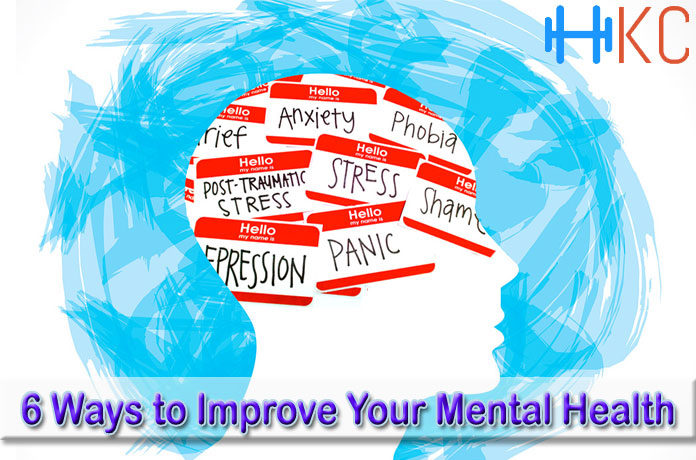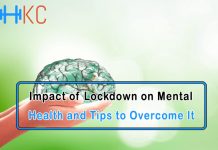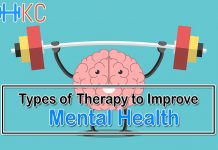When you think about self-care and health, it’s a holistic system. Our well-being depends on mental, physical, emotional, and spiritual health (even if you don’t consider yourself a person of faith). Neglecting even one of these elements makes the entire system go haywire. Fortunately, the stigma around seeking mental health treatment has started to fade.
However, that doesn’t necessarily make it easier to access mental health services. Not all insurance policies cover mental health nearly as well as they do physical health (if at all). A number of mental health experts and facilities require a referral from your general physician. Without a referral, you might get stuck with high out of pocket expenses.
It’s also tougher to simply access mental health services in some cases. There are certainly geographic constraints. However, the influx of telehealth services is making it easier for even those in rural areas to connect with high-quality mental health services.
Prioritizing Mental Health
There are a lot of potential barriers to tackle in order to get the mental health services you deserve. Sometimes these services are still treated as a specialty-as if only people who have an acute need or are looking to address a specific trauma “should” get the help of a mental health professional. In reality, every single person could benefit from mental health services.
The good news? You don’t have to go to a therapist, psychologist, or psychiatrist to improve your mental health (although those are all excellent choices that can benefit anyone). There are many ways to improve your mental health, such as mindful walking in the woods or attending a yoga class. Finding the right mental health “helper” that works for you is important.
This will take some trial and error. What works for you might not work for someone else. You’ll also have different experiences depending on where you are in your own life. That’s why some relationships with a great mental health counselor naturally come to a close.
If you’re ready to prioritize your mental health, consider the many ways to do so. Here are six and how you can make the most of them:
- 1. Schedule meet and greets with mental health experts. There are numerous types of specialties available, such as EMDR (eye movement desensitization and reprocessing), and also various schools of psychological thought. You don’t need to become an expert yourself on the many approaches and schools, but it is a good idea to sample a few strategies. The best way to do this is to schedule a meet and greet with a rich variety of experts.
Some mental health experts will offer an introductory short meeting while others are available for a discounted initial meeting. Trust your gut going into this process. The odds of connecting with the first person are slim-just like any other relationship. Be prepared to share what you’d like to get out of sessions, such as addressing drug and alcohol addiction, eating disorders, or sustaining traumas. It’s important to take care of one’s mental health to build the toolkit necessary for self-care, to prevent substance abuse and addiction, and prevent falling back into old harmful patterns.
- Learn to say no. This is one of the most powerful skills you can develop. We live in a society that conditions us to say yes to everything. There are even books about saying yes non-stop! However, that flies in the face of self-care. We live in an era where we’re all under-slept, over-stressed, and have jam-packed schedules. That’s inherently unhealthy for every facet of our health, including mental.
Saying no means prioritizing ourselves and our health. Prioritizing rest ensures that we are at our best to take on the important matters in our lives. Saying no isn’t selfish. It’s a basic tool of survival and self-care. You will also likely need to learn strategies to handle guilt trips and shaming, which are bound to come snapping at your heels when you start saying no. Again, this is where a mental health therapist can be a great help.
- Go outside and away from the city. Whether it’s a chip trail in the woods or a jaunt to the beach, everyone has some type of natural wonder not far from their home or work. It’s not enough to just “get outside,” although any type of fresh air is a great boost for mental health. We also need to surround ourselves with nature. Practice “forest bathing,” or mindfully walking in the wild, for an instant type of walking meditation that requires no chanting or hours of sitting in lotus position.
The outdoors and nature heal. They feed the soul. Even a brisk 15-minute walk without technology or sounds of traffic can reduce headaches, caffeine cravings, and give you natural energy. Oftentimes, it’s what we’re actually craving.
- Feed your body right. Food is our fuel, and if we’re operating on processed junk how mentally healthy can we be? This doesn’t mean you have to adopt a vegan, organic, whole foods lifestyle all the time. It simply means being conscious of what we’re feeding our body and mind is important. Notice how you feel after eating a healthy meal. Take note of how different the experience is when you eat slowly and mindfully.
Take your time chewing (chewing twenty times before swallowing is a typical indicator of mindful eating). Don’t look at a screen while eating. If you’re dining with others, indulge in positive, healthy conversation. Make it an experience.
If you do notice that you are struggling to get enough a particular type of nutrition, you could look to supplements to help top you up. For example, if you know you don’t consume enough protein, you may wish to take a look at resources like this Dr. Kellyann review to help you find something that can be worked into your everyday routine.
- Play mind-building games. Whether it’s a crossword or an app designed to strengthen brain power, if you’re a game-player (in the good way), try your hand at a game created to challenge your mind. It can be argued that just about any game falls into this category, and that might be true. However, make it your mission to seek out a game that’s unique to you.
If you’re prone to playing games on your phone, go old school with a game of Scrabble or Memory. Do something different, surprise yourself, and improve your mental health in the process.
- Avoid negativity. This seems so obvious, and yet so many people flock to the negativity in their lives. It can’t always be avoided, such as the pessimistic co-worker you share a space with. However, in many cases it can be-such as the fact that social media often makes us feel lonelier and bad about ourselves. Take a break from being online and prioritize spending time with positive people who make you feel better about yourself and the world.
When you can’t avoid negativity entirely, minimize it or develop tools to contradict it. For example, that negative co-worker probably won’t complain much to you if you don’t offer a sounding board. Both negativity and positivity feed off one another. Seek out the positive and become part of the process.
Mental health, just like physical health, can become more challenging to manage as we age. That’s why it’s important to make it a priority as soon as possible. Everyone knows that feeling when they’re alert, happy, and clear-headed. Understand when that’s happening and determine the factors that brought it forward. Is there a specific time of day that makes it more likely, or perhaps an activity?
From a meditation class to spending more time with loved ones or dedicating one day a week to self-care, there are many ways to make mental health a bigger part of your life.














